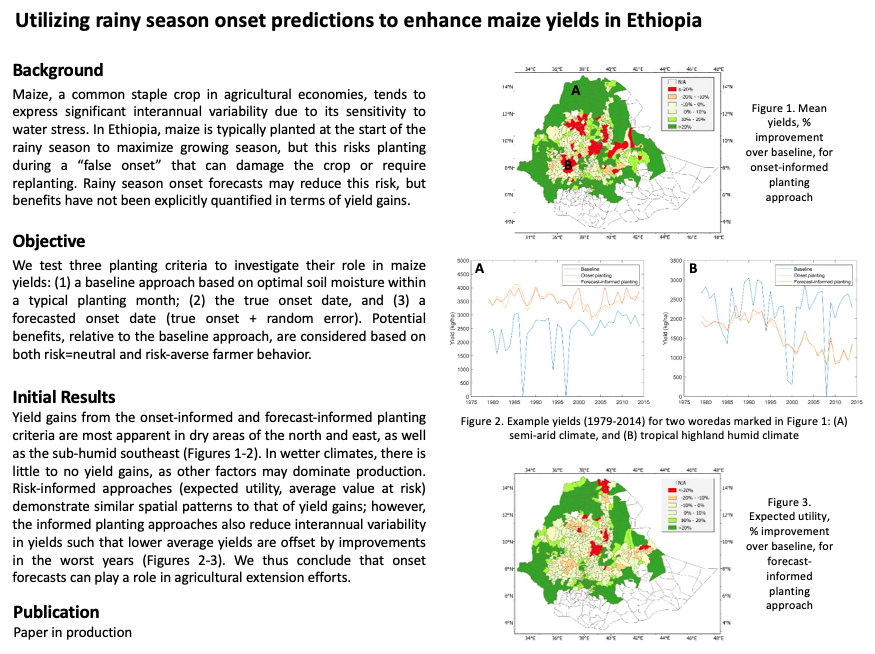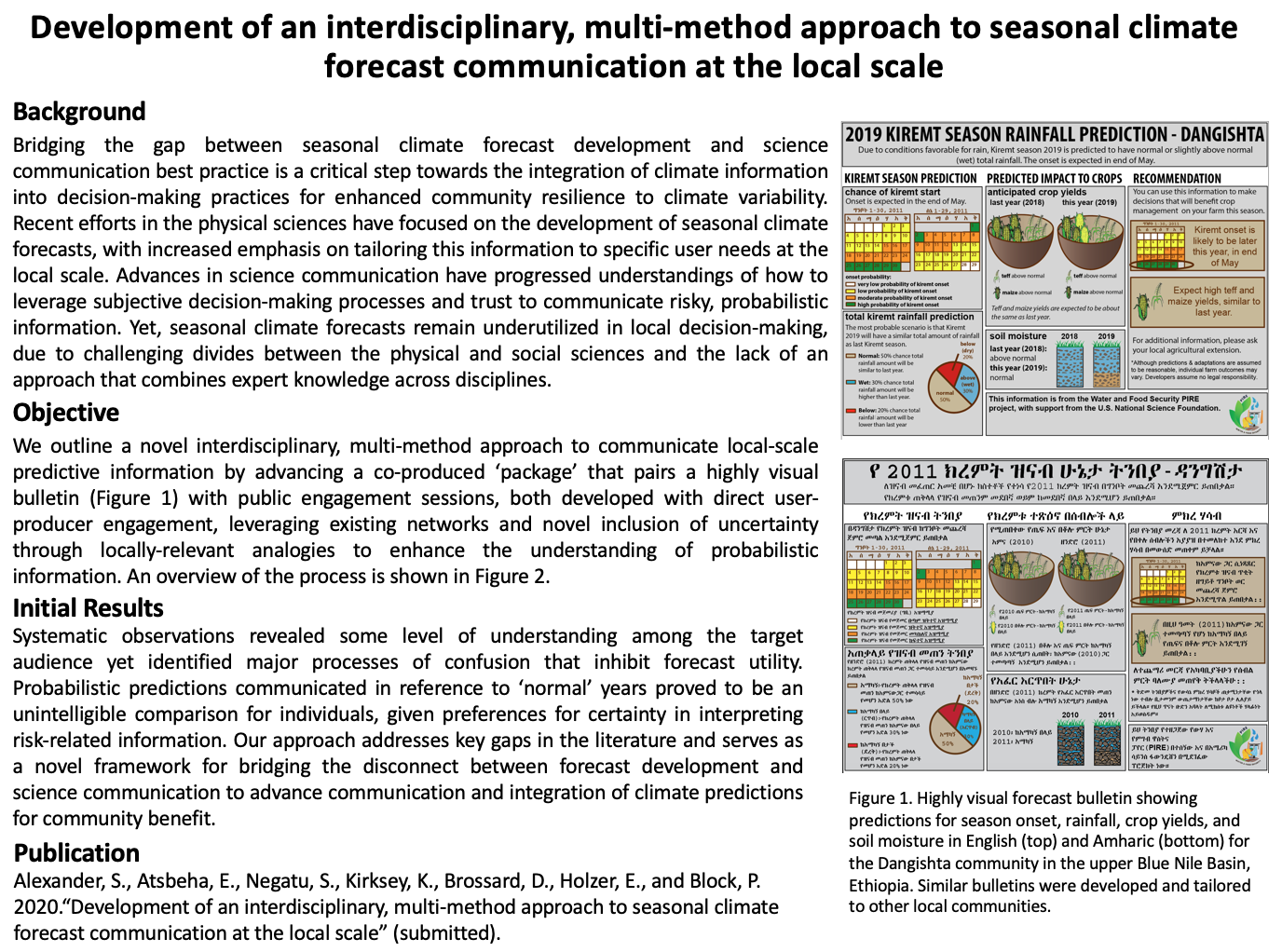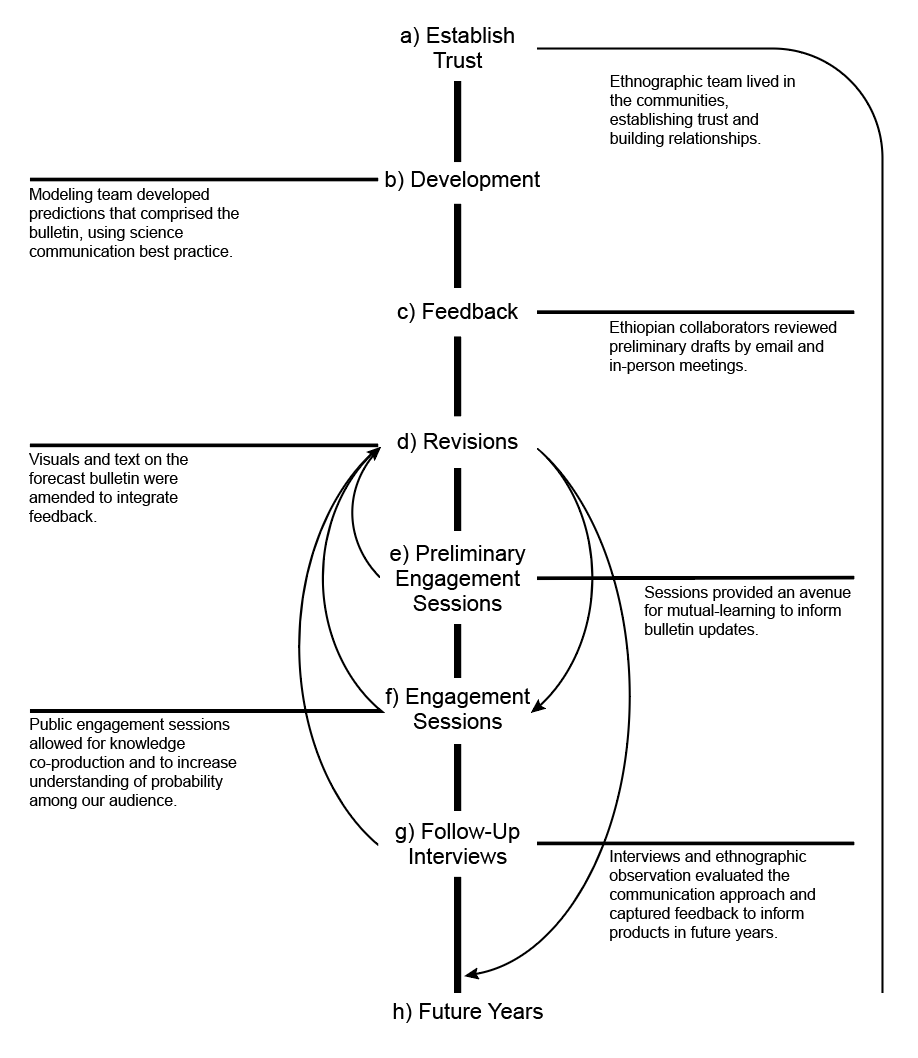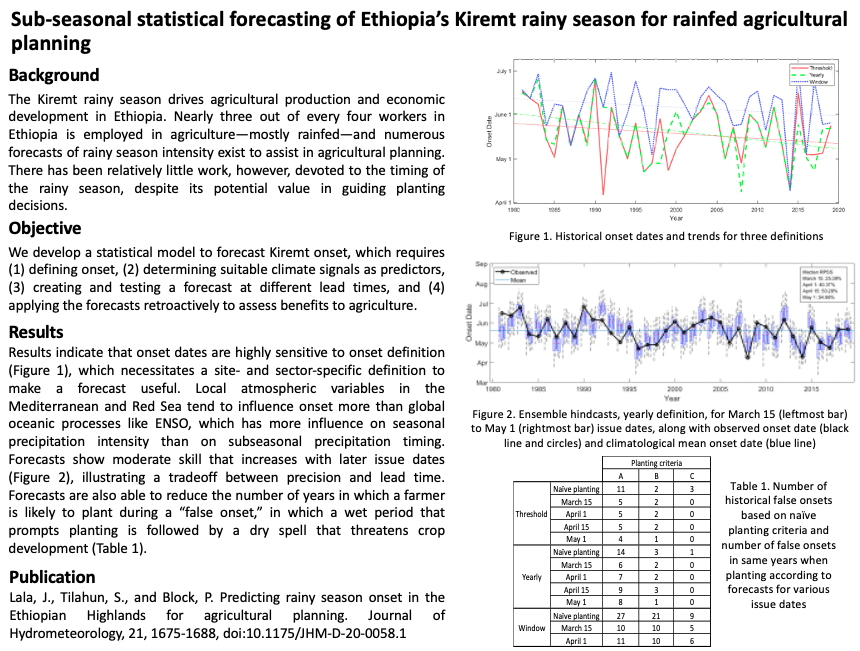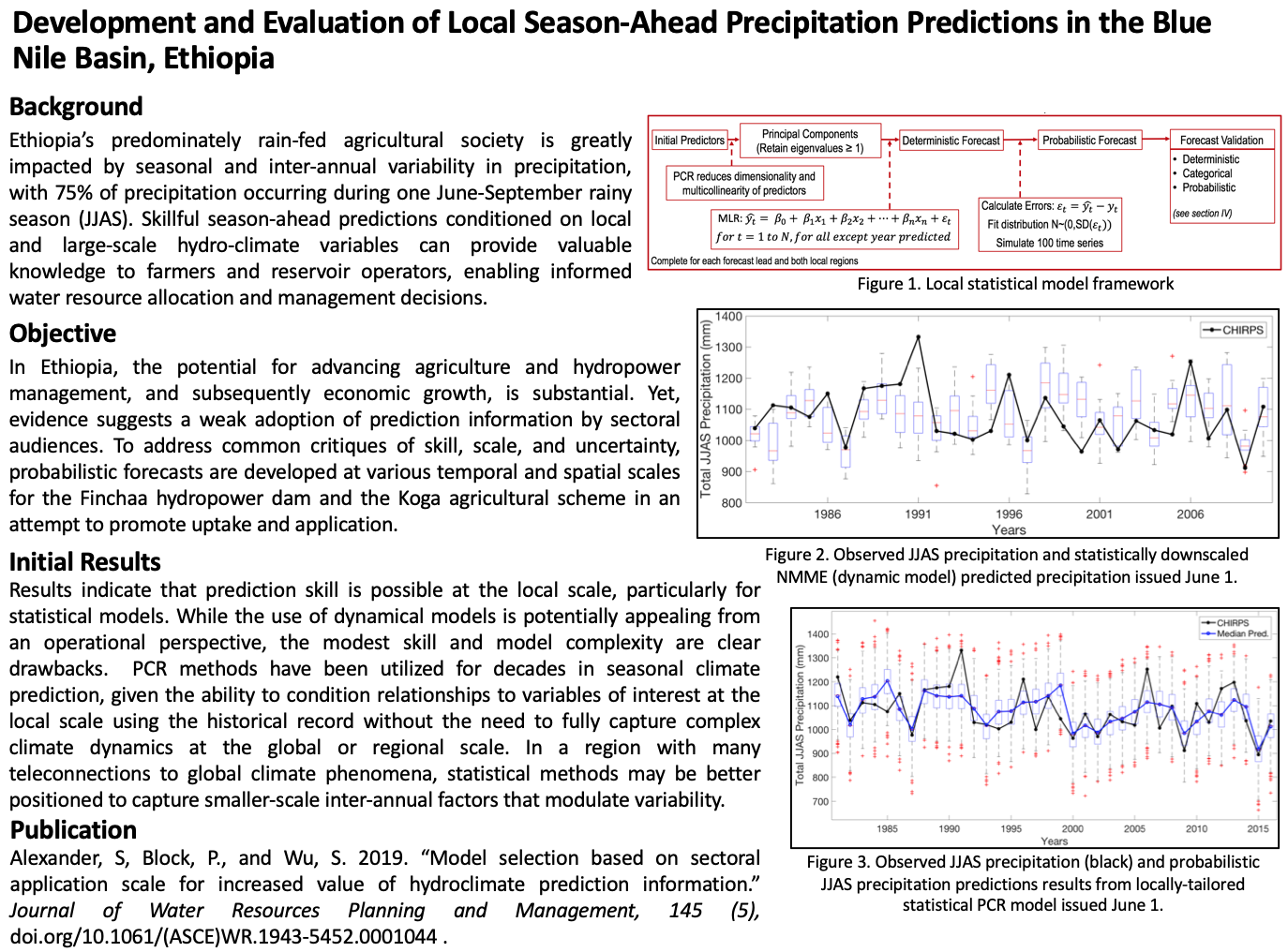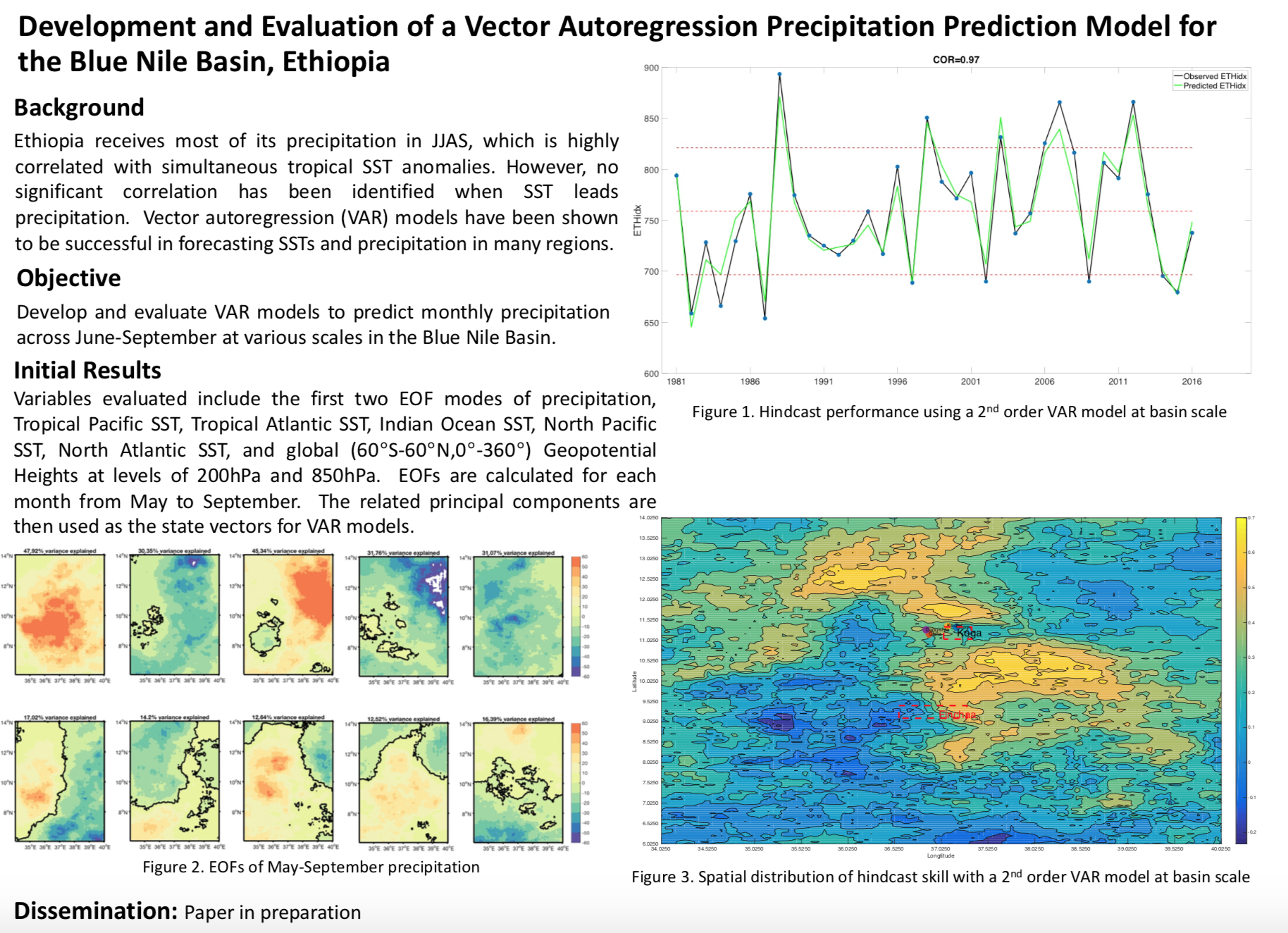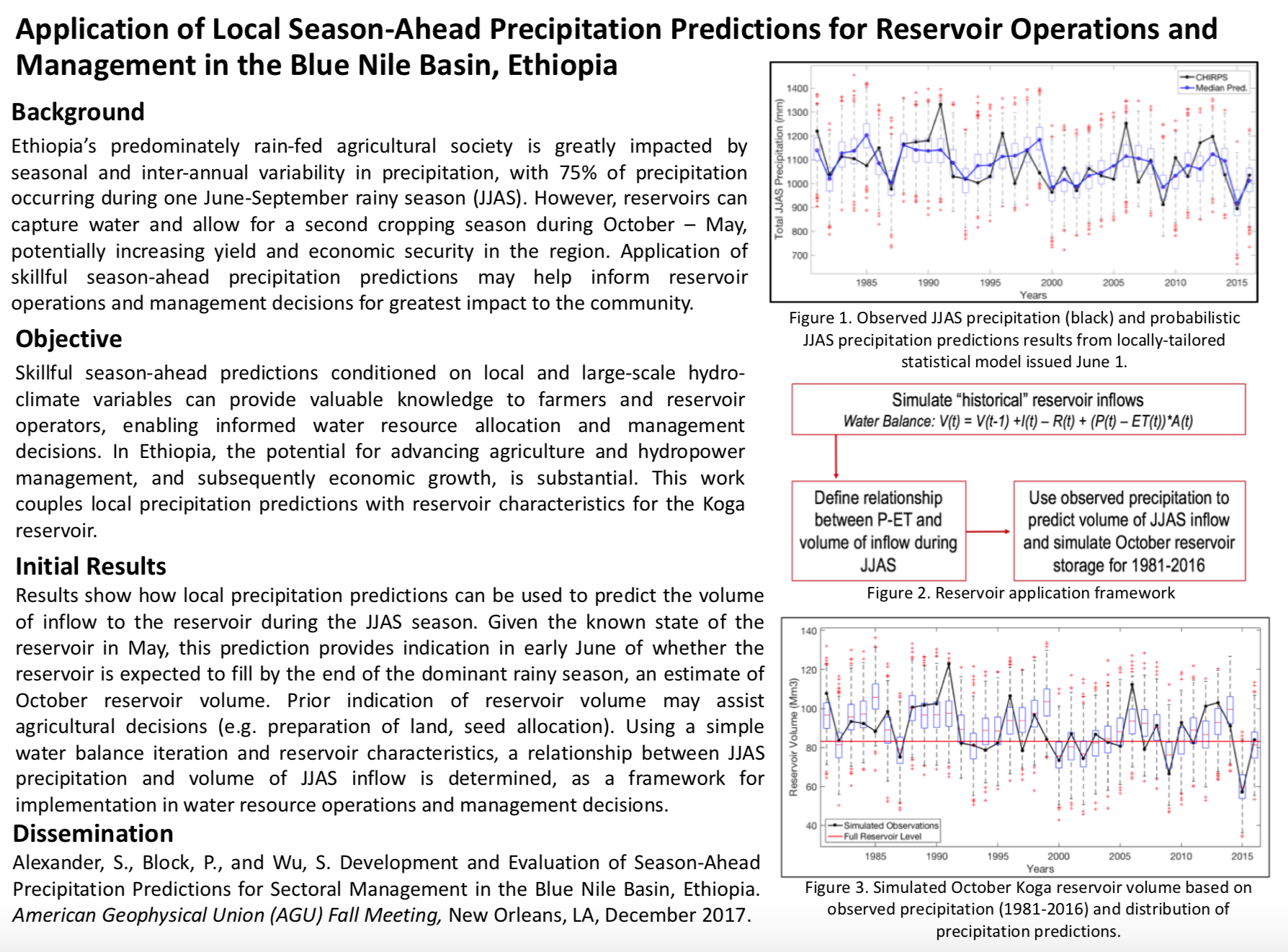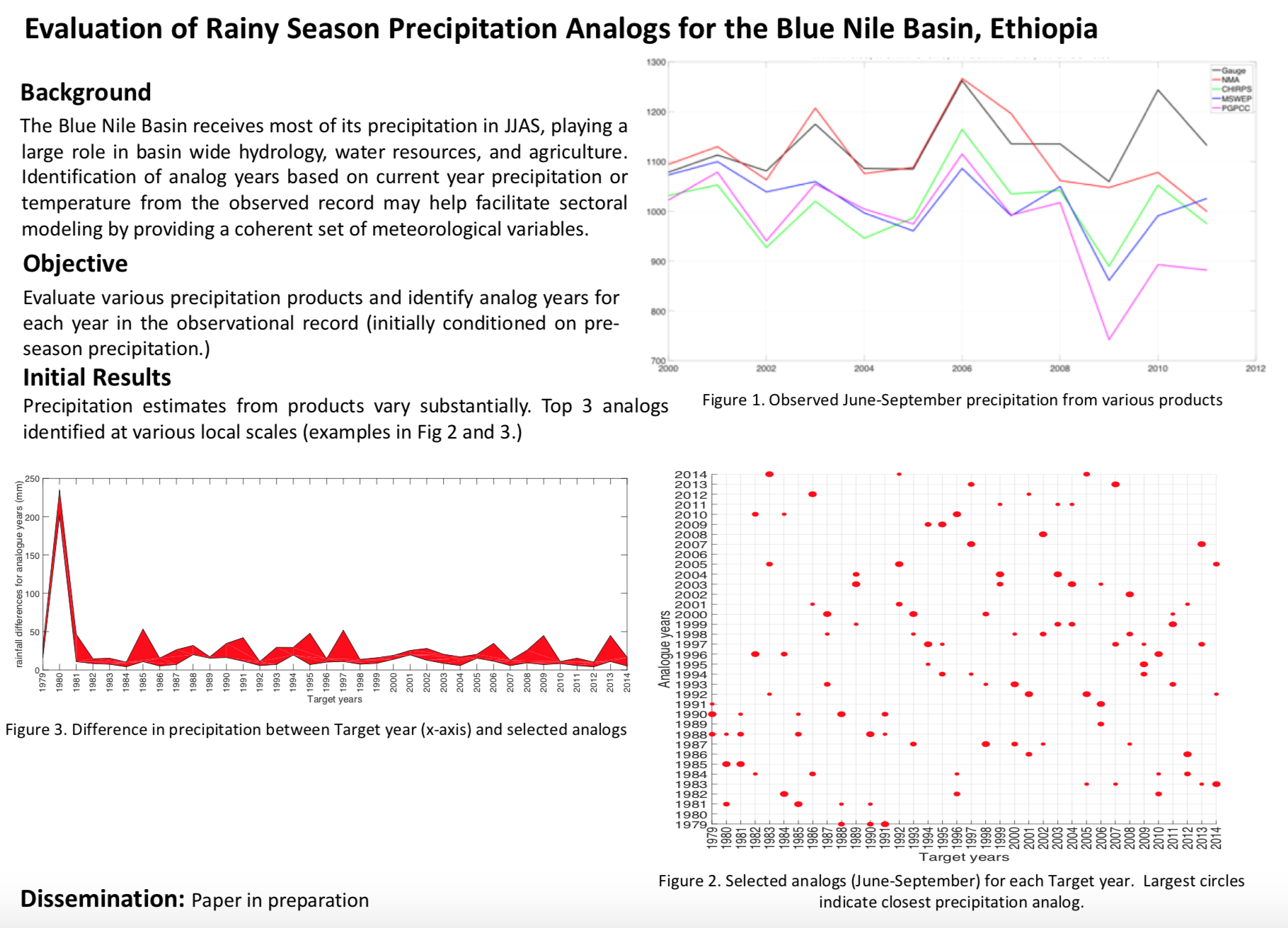Partners: University of Connecticut, University of Oklahoma, International Food Policy Research Institute (IFPRI), Bahir Dar University (Ethiopia)
Funding Agency: NSF
Award Period: 2016-2021
Hydroclimate conditions in the Blue Nile Basin, Ethiopia are integral to many facets of the domestic economy, given the reliance on rain-fed agriculture. Greater climate variability in the region alters quantity and timing of precipitation, which exacerbates Ethiopia’s vulnerability. Skillful season-ahead streamflow forecasts conditioned on precipitation, soil moisture, and other hydroclimatic variables can provide valuable knowledge to farmers and reservoir operators, enabling informed water resource allocation and management decisions. In Ethiopia, the potential for advancing irrigated agriculture and hydropower management, and subsequently economic growth, is substantial. Yet, evidence suggests a tenuous link between well-meaning scientific research/forecasts and adoption of these resources by the targeted audiences.
The PIRE project integrates research, education, training, and outreach to enhance water and economic security by leveraging knowledge and resources across engineering and the social sciences. Through linking sociological and engineering methods, the project aims to provide water resource managers with seasonal forecasts at an applicable scale, identify political – institutional barriers to the uptake of forecasts, and educate an international team of experts. The multi-year collaborative will provide relevant decision-making tools in a people-centered approach to addressing the human – climate – water – agriculture – energy nexus in the Blue Nile Basin, Ethiopia.
Summary of Current Research
Figure 2. Diagram of the interdisciplinary, multi-method approach for the communication of local-scale predictive information.
Tailored, local-scale forecasts for the Kiremt (wet) and Bega (dry) season in English and Amharic are available here.

